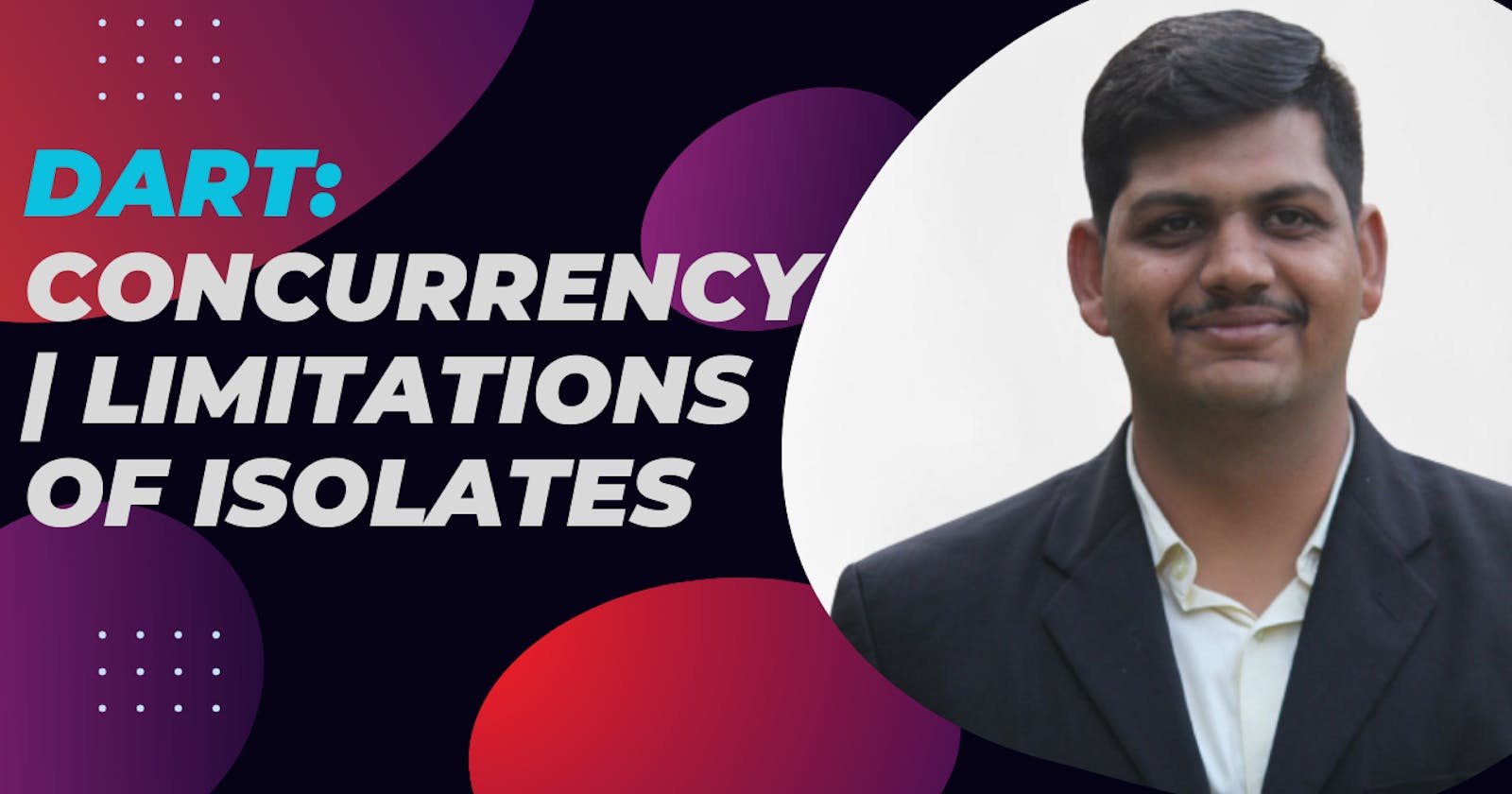Introduction: While Dart isolates offer a powerful mechanism for concurrent programming, it's essential for developers to understand their limitations to make informed decisions when designing and implementing concurrent applications. In this blog post, we'll explore some common limitations of Dart isolates and discuss strategies to overcome them.
Memory Isolation: One of the key benefits of Dart isolates is memory isolation, which enhances application stability and security. However, this isolation comes with limitations, particularly in terms of shared memory communication between isolates. Unlike some other concurrency models, Dart isolates do not directly share memory. Instead, they communicate through message passing, which can introduce overhead, especially for large data structures.
Example: Limitation of Shared Memory Communication
import 'dart:isolate';
void main() async {
final List<int> sharedList = [];
// Spawning two isolates
Isolate.spawn(isolateFunction, sharedList);
Isolate.spawn(isolateFunction, sharedList);
// Main isolate continues execution
// ...
// Trying to access sharedList here may lead to unexpected behavior
}
void isolateFunction(List<int> sharedList) {
// Attempting to modify sharedList
sharedList.add(42); // This operation might not be synchronized
}
Explanation:
Dart isolates don't share memory, so modifications made to shared data structures (like sharedList) by one isolate may not be visible to others.
This limitation can lead to race conditions and data inconsistencies if proper synchronization mechanisms are not implemented.
Performance Overhead: While isolates offer concurrency, spawning and communicating between isolates incur performance overhead. The process of serializing and deserializing messages for communication can impact performance, especially for small, frequent messages.
Example: Performance Overhead of Message Passing
import 'dart:isolate';
void main() async {
// Spawning an isolate
final ReceivePort receivePort = ReceivePort();
await Isolate.spawn(isolateFunction, receivePort.sendPort);
// Sending a large message to the isolate
final largeData = List<int>.generate(1000000, (index) => index);
receivePort.send(largeData); // Serializing largeData may be time-consuming
}
void isolateFunction(SendPort sendPort) {
final ReceivePort receivePort = ReceivePort();
// Receiving a large message
receivePort.listen((data) {
// Processing large message
});
}
Explanation:
Serializing and deserializing large messages can introduce performance overhead.
Care should be taken when communicating large amounts of data between isolates to avoid impacting application performance.
